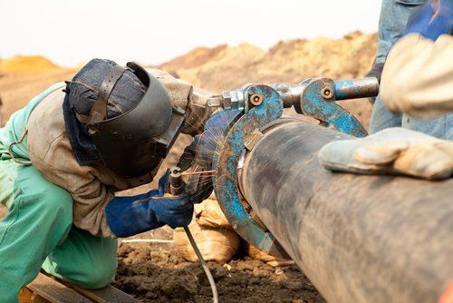Domina Law Group Managing Attorney Brian Jorde was recently interviewed by the American News for an article profiling landowners’ concerns over a proposed carbon pipeline.
As the article notes, Iowa-based Summit Carbon Solutions applied for a permit with the South Dakota’s Public Utilities Commission this week to move forward with the construction of a $4.5 billion carbon sequestration pipeline through South Dakota. The proposed project would transport 12 million tons of carbon dioxide annually from ethanol plants through 2,000 miles of pipeline to North Dakota, where it would be sequestered underground.
The pipeline, which would also stretch through North Dakota, Minnesota, Iowa, and Nebraska, has raised concern among landowners in all affected states.
The American News reached out to Attorney Brian Jorde, who recently spoke with tribal leaders about the pipeline’s potential environmental impact on tribal land and has represented landowners in landmark litigation over the Keystone XL pipeline, for insight on the concerns in South Dakota. In addition to safety issues, landowners also question how the company with acquire land and who would be responsible for the pipeline should something go wrong.
In terms of pipeline responsibility, Jorde told the American News that landowners are typically held responsible when they rupture pipelines and noted that he has seen his own clients get sued for millions of dollars by pipeline companies due to accidental damage.
As for acquiring land to build the pipeline, Summit is currently approaching landowners along the proposed route to sign easements in exchange for payment depending on how much of their property is used. Company officials have also discussed using eminent domain, which would mean that landowners get no say in the matter.
According to Jorde, landowners should be wary about signing easements if they don’t fully understand the project. Not only do companies typically make low offers in hopes landowners will accept right away, once an easement is signed, there are few if any options to change one’s mind.
“You don’t get a redo. You don’t get to go to court. You don’t get to go through the condemnation process and start over. It’s over,” said Jorde.
Read the full article featuring quotes from Brian Jorde here.
Brian Jorde is Managing Partner at Domina Law Group. He is currently working with landowners in all five states affected by the pipeline.

